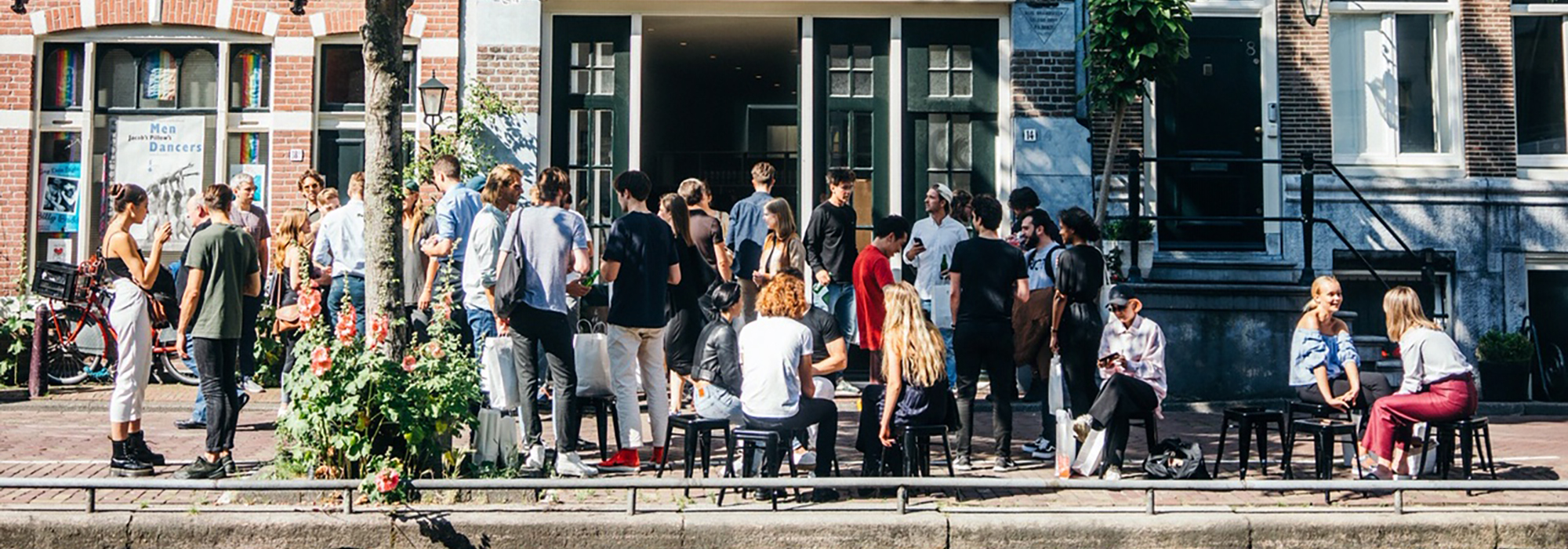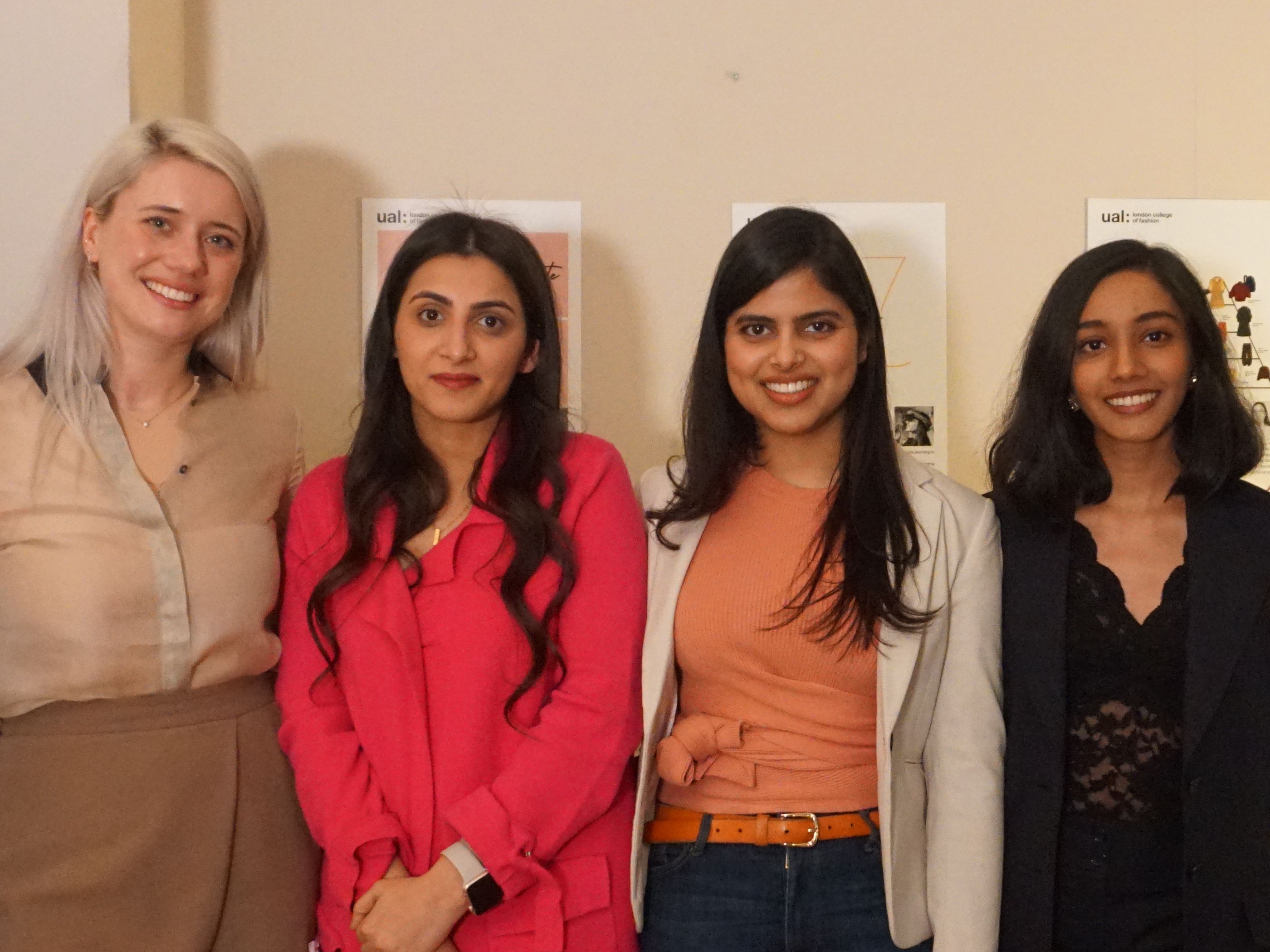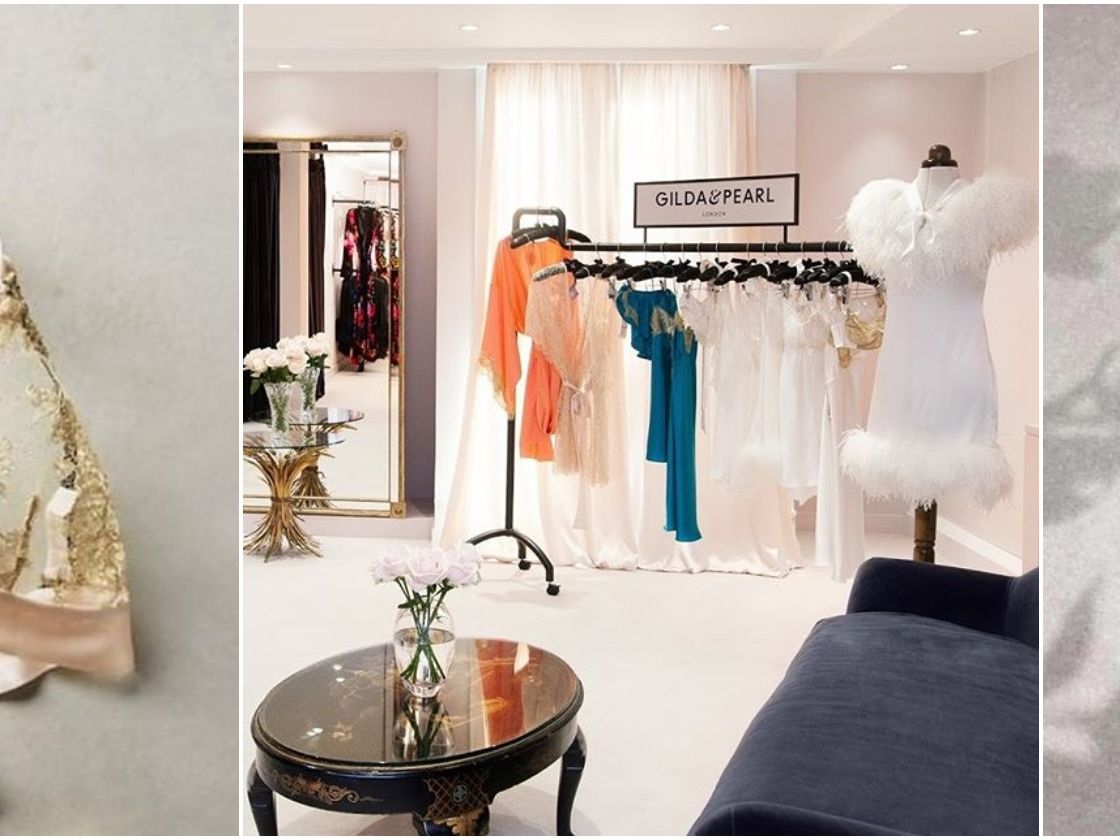Being attracted to the business side of fashion, Esther Kroes took the chance to join the BSc (Hons) Fashion Management at LCF as an exchange student coming from Amsterdam Fashion Institue (AMFI). With a strong entrepreneurial spirit, Esther moved to London to amplify her network of contacts in the industry and work on her business idea: a platform that provides private client services in luxury rental fashion. We sat down with her to talk about her experience of changing Amsterdam for London, the importance of connections for fashion start-ups and what excites her about the future of the industry.

Hi Esther! Tell us a bit about your journey before coming to LCF. Did you always know you wanted to have a career in fashion?
I’ve always been interested in knowing how fashion brands evolve and what kind of components are needed to create a strong brand. My first 2 years at AMFI were mainly focused on the branding side from a more creative perspective, like visualisation, campaign strategies and market research. After 2 years I realised I really wanted to develop my knowledge on the hard-core business side of fashion: how start-ups evolve, what funding they need, how to create growth strategies for brands. I decided to do a minor in corporate entrepreneurship and innovation, which was fully dedicated to business theories – it was so challenging! I did my internship in a fashion start-up based in Amsterdam, where I developed their retail strategy to help them open their first store, but as it was a new business I also had my hands in lots of pies, which really helped me understand how fashion businesses are created and how they survive.
You were clearly attracted to entrepreneurial side of business, but why in fashion specifically?
I really, really love the fashion industry! I’ve always been drawn into fashion design and high couture — I think it comes from a side of my family, as my mother and my grandmother were seamstresses.
What I really like about fashion is that it’s a very social industry, very open-minded, there’s always room for innovation — it’s so broad and it’s never boring!
Once you get into this industry, you can easily spend 7 days a week thinking about it. For many people, working in fashion is not just a job, it’s a lifestyle. I love the balance between creativity and business, and how the two come together to tackle challenges to create a commercially viable product.
I can definitely see how your passion comes through when you’re talking about fashion, which is really inspiring! So why did you choose LCF to continue your journey into the industry?
Before I started my studies at AMFI, I did a lot of research on fashion institutes and that’s when I came across London College of Fashion for the first time. I was quite young back then and I didn’t have a lot of knowledge on scholarships and funding, so I ended up staying in Amsterdam and applied to do my bachelor’s in AMFI... but LCF was always in the back of my mind.
I knew I wanted to go to London and I knew I wanted to go to LCF, so last year I finally decided to go for it and I applied for the UAL Exchange Programme. When I found out it I got accepted I just couldn’t believe it!
What attracted you about the BSc (Hons) Fashion Management course?
It was the obvious choice for me because it has the business direction I wanted to have, and I love the fact that it allows you to combine qualitative and quantitative research for your final project. I also knew a course like this would help me to create a wider network of contacts in London within the fashion industry.

How has it been for you moving to London from Amsterdam? Was it as you expected?
When I was still in Amsterdam I started looking for jobs in London and I got the opportunity to work as a digital consultant for an online menswear design platform based in London. As an exchange student I felt really welcomed in LCF and after only 2 weeks of moving to London I started feeling like home, which was really unexpected.
This University offers huge support to students and I’m very amazed by it — the teachers really show that they care about you and your development, and I know I can rely on them if I had any problems.
Now that I’m focusing on developing my own project as an entrepreneur I’ve also received a lot of support from the Graduate Futures team. They keep pushing me to aspire for more and think bigger, and it’s great having that safe space to grow personally and professionally. For me, the fact that we have this big network of support, it says a lot of why LCF is so highly ranked as a fashion institution.
From your experience so far, what have you enjoyed the most about being at LCF?
The lectures! I think what makes studying at LCF so special is that we have lecturers and guest speakers that are very actively involved in the industry. They’re also very approachable and they encourage you to connect with them.
Talking of making connections, you’ve been assisting Karinna Nobbs on her project A.Hot.Second. How did you get this opportunity?
Ah yes, working with Karina has been one of the best experiences I’ve had so far. She came to LCF one day as a guest lecturer to talk about Fashion Futures and she told us about her project where she’s mainly focusing on digital fashion, a field that was still very new to me. When she was pitching in class the idea about A.Hot.Second everyone was very skeptical — because it’s new, it’s different, it’s not tangible — and for some reason I felt completely drawn towards her idea.
Karina came back for a second classroom session and I approached her at the end because I wanted to know more, and she mentioned she needed some help to set up the psychical space for A.Hot.Second in Shoreditch. Immediately we connected on LinkedIn and kept in touch, and that’s how we started working together. Being there during the launch in Protein Studios was great, also a unique opportunity for me to network.
I think if you want to make valuable connections in the fashion industry you need to have this attitude of “call me if you need me.” Show interest in other people’s projects and let them know what you can do for them, that’s how you get to access great opportunities.
Why do you think connections are so important in the fashion industry?
That’s always the way to get the most fun jobs. It’s also the best way to learn from other people — if you’re in a room talking to a trend forecaster, a designer and a specialist in digital fashion, that exchange of knowledge is so valuable. If, like me, you want to have your own company, then you really need your networking skills on point and be ready to make lots of connections. I also really enjoy meeting people, it gives me so much energy and it renews my optimism about being part of the fashion industry.
Digital fashion is a really cool area, still quite new and there’s so much to explore, as you mentioned earlier. What attracts you about the use of new technologies in fashion?
Fashion is all about experiences and this is what technology can help us to enhance. It allows us to get things done so much easier and much more efficiently. However, human interaction still is and will be super important, so I’m very interested in exploring how we can achieve a good mix of the 2 together — for example, how can technology and people work in conjunction to achieve higher levels of consumer satisfaction during their shopping experience?
Do you think we have a ‘Black Mirror’ mentality when it comes to technology and fashion working together?
The first time I went to a digital retail fair and I saw a camera detecting my face and knowing straight away I was a 24-year-old female, I thought “what the hell!?” Some shops are now using sensors and cameras to better understand how consumers interact with their products and improve their experience in the shop, but they’re hidden, so you don’t know they’re actually there.
I do think there is a wave of skepticism towards the data these devices collect, but we have to remember we already share a lot of personal data on social media and brands can monitor what you post or interact with to track your online behaviour. I think if consumers knew what stores do with the data, and see they’re only using it to give you a better and more efficient service, it would be much easier for people to understand these technologies. Brands need to be very transparent and that’s a huge challenge.
It will be really interesting to see how this will all develop in the next few years. What are you most excited about the future of the industry?
I’m very excited about the change in consumerism and thinking how people will consume fashion in 10 years. It will be really interesting to see how fast-fashion will evolve in the future — are we going to see a continuous expansion in rental services and second-hand shopping? I do hope so!
- Follow Esther on Instagram and connect with her on LinkedIn
- Find out more about BSc (Hons) Fashion Management
- Explore LCF undergraduate courses
- What’s on at LCF: open days and events





